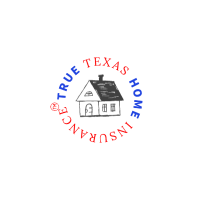Denise from Frisco couldn't believe her eyes as she surveyed the aftermath of yet another vicious hailstorm. The siding of her home pocked and the roof battered, memories of the storm damage from last Spring still vivid in her mind. Denise knew that she was going to be faced with the task of filing yet another homeowners insurance claim. As the knot tightened in her stomach, she thought through paying deductible again, the mess of the repair, and the thought of what her insurance provider might do about her rates and policy. She pondered if her insurance company could decide she's too much of a risk and drop her after this round of storms? The thought left her uneasy for sure, and pondering the situation as she prepared to make the call to the claims center that might just tip the scales. But should Denise be worried?
How Catastrophic Claims Can Affect Insurance Coverage
When it comes to frequent claims as a result of severe weather, Texas is among the leaders in the US. Not the sort of contest that we need to win, and the impact on your homeowners coverage can be significant. Insurers might raise home insurance premiums or impose limitations on your level of coverage. These two things are complicating financial decisions for Texans all over the state. But a bigger concern to Denise was whether or not she could be dropped.
What Does It Mean To Be Dropped?
Being dropped from your home insurance can be more than just a minor hiccup. Depending upon how you handle the situation with your current homeowners insurance company, it can be a disruptive force that can leave you scrambling to find alternative coverage in an already tight insurance market. For many Texans, the departure of several home insurance companies has only added to the chaos. Whether it's due to non-payment of premiums, failure to maintain the property, or simply the insurer cutting their losses and moving on—being dropped can feel like a harsh abandonment. It's important to understand the difference between a non-renewal and a cancellation.

The Difference Between Being Non-Renewed & Canceled
Both non-renewal and cancellation lead to the same daunting outcome for homeowners in Texas: the urgent need to secure new insurance. A cancellation often indicates a breach of policy terms or a failure to adhere to underwriting guidelines on your end. This can come from an inspection of your property that indicates an unfenced pool or tree limbs touching your roof, or maybe you just had a payment of premium that was missed. These cancellations do require advance notice to be sent to the homeowner. Fortunately, none of these applied to Denise as a cancellation notice is typically viewed negatively by the home insurance carriers when looking for replacement coverage.
Non-renewal doesn't necessarily reflect negatively on the homeowner. That is because it can occur for various reasons, including an insurance company's strategic business decision to withdraw from a state or region. This has been a very real concern for Texas homeowners like Denise over the last year as many of the more affordable homeowners insurance companies have had to exit Texas due to numerous claims that made them unprofitable.
When a company does create a large set of non-renewed policies, the Texas insurance department has requirements on what has to occur. Firsts and foremost is that the insurance company must provide adequate notice to homeowners like Denise. This allows them to have enough time to secure a new homeowners insurance policy before the current one expires. This is done to make sure that you do not end up with a lapse of coverage that can prove to be problematic.
What Is A Lapse in Coverage & Why Is It Bad?
A lapse in coverage occurs when there is a period of time between your last policy and your current policy where you were uninsured. Most Texans don't find themselves in this situation, but if you're not paying attention and miss that cancellation notice and find yourself without coverage it can have multiple issues. Not only does it leave your home and belongings unprotected which is a risky scenario for any homeowner. A policy lapse can also make it incredibly difficult to obtain new homeowners insurance coverage when you begin to replace it. You are seen as an unacceptable risk which can force you to purchase minimum coverage from high-risk homeowners insurance companies.
And what many Texans don't ever consider until the bill comes due is that their mortgage company will force the homeowner to pay for insurance company that they were carrying for the homeowner during their insurance lapse. Fortunately, for Denise she was not faced with this problem. But let's make sure we understand what your mortgage agreement dictates if you do have a lapse in coverage.
What Is Force-Placed Insurance?
A force-placed insurance policy is a safety net used by mortgage lenders to protect their property interests. These policies are initiated when a homeowner fails to maintain adequate coverage on their home. This type of lender-placed insurance ensures that the property remains insured, albeit often at higher costs and with less favorable terms for the homeowner. The dirty secret that often isn't said out loud is that your mortgage servicer can charge you for this after the fact when they find out that you had a lapse sometime in the past.

What Should I Do When I Get A Notice I've Been Dropped?
Ultimately, Denise ended up calling our office because she did end up being non-renewed. The insurance provider that she had been using for coverage on her Frisco home decided to leave the marketplace. They followed all regulations form the department of insurance and she received her notice of nonrenewal. But receiving a notice that you've been dropped from your home insurance while alarming isn't the end of the world.
The first step should always be to contact your provider to clarify the reasons behind the decision. It's important to understand why and get copies of all the expiring coverage. The next step is to begin looking for replacement coverage as quickly as possible. In the current Texas home insurance marketplace, finding affordable coverage in a quick fashion is incredibly difficult. Many companies are making it tougher to make changes, and when they do offer policy terms to you it may not be the coverage that you are looking for. This is where True Texas Home Insurance can be a lifesaver for Texans. It offers folks like Denise comprehensive coverage for her home tailored to the unique challenges of where she lives in Texas.
How Does True Texas Home Insurance Work?
True Texas Home Insurance isn't just any policy—it's designed to withstand the rigors that Texas weather throws at homeowners. It is a standard set of coverages that ensures that your policy covers roof replacement, which is especially important in hail-prone areas. It also makes sure that you have adequate water damage coverage. Working with the local independent insurance agents at Insurance For Texans can make navigating these waters smoother, providing clarity and assurance that your home is fully protected. Insurance For Texans is the only place that you can get True Texas Home Insurance.
Working With Insurance For Texans
At Insurance For Texans, we understand the importance of thorough coverage. Our True Texas Home Insurance guarantee is designed to make sure that you can maintain peace of mind during the storm season and beyond. Work with our agents who are experienced professionals who prioritize your needs over the interests of big insurance companies.
Click the button below to see how repeated claims could affect your home insurance policy. Dive deep into the realities of home insurance in Texas with True Texas Home Insurance, and discover how we can help keep your home secure, come hail or high water.


